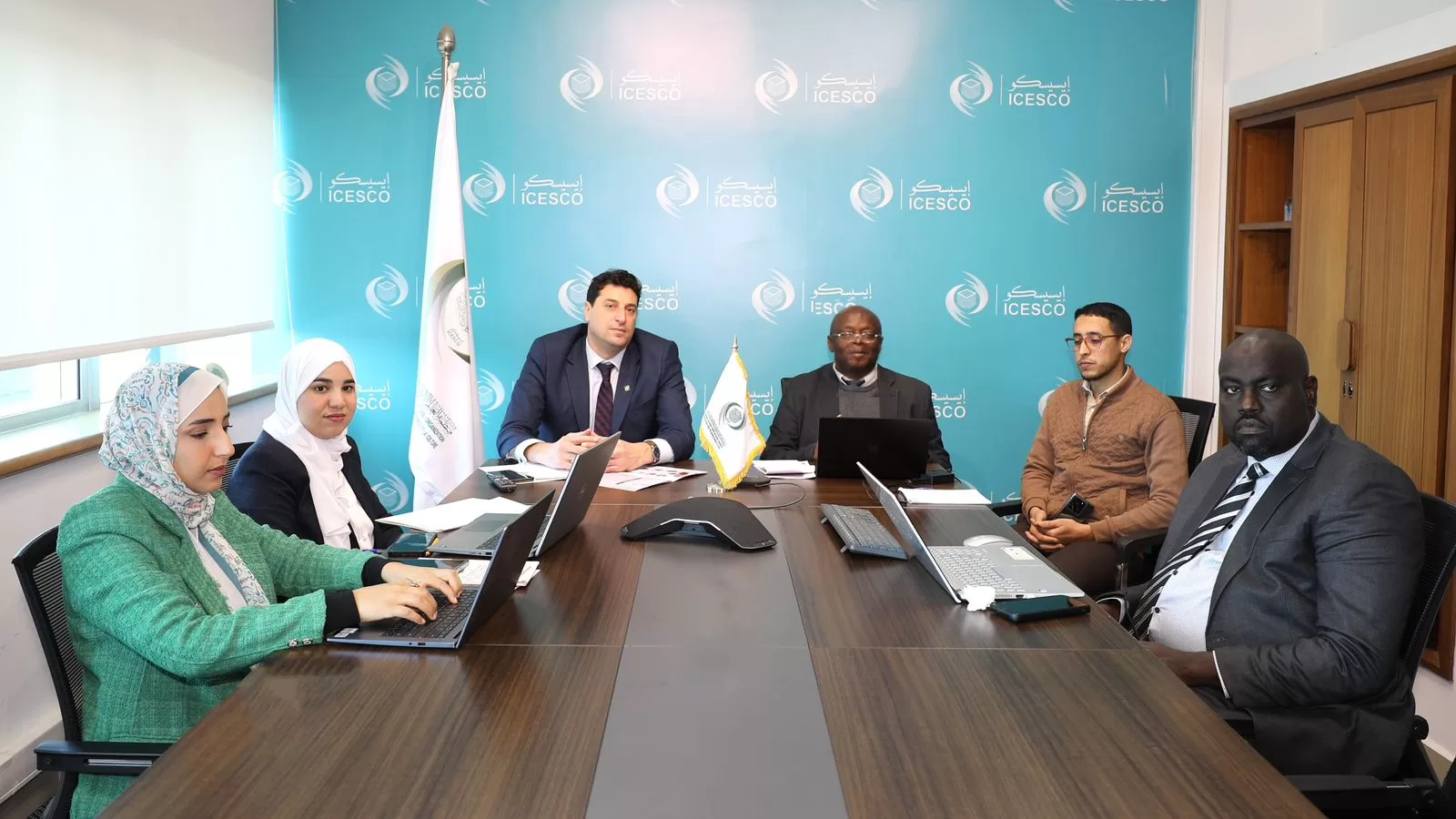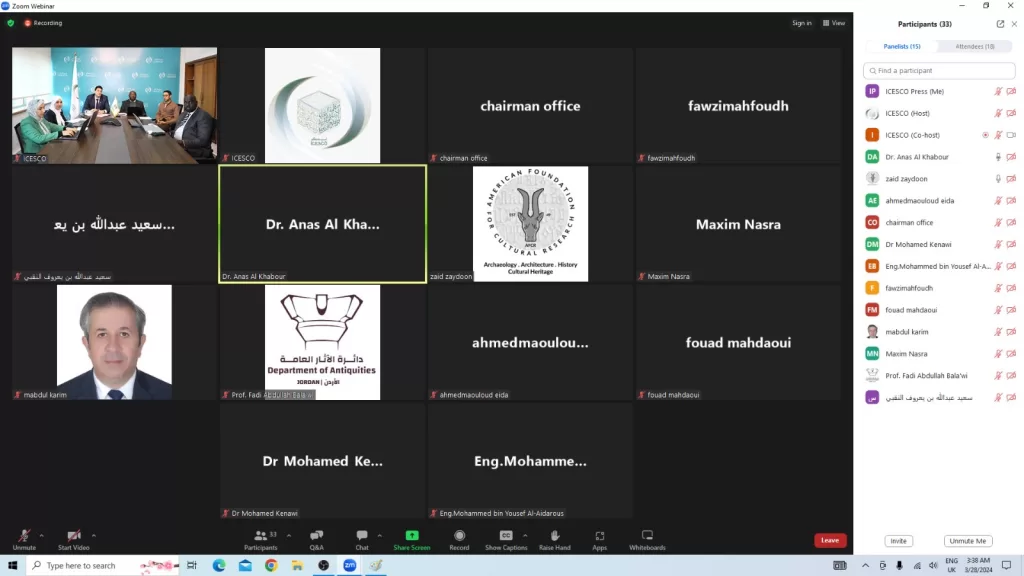
ICESCO Launches a series of working sessions to develop Its strategy to combat trafficking in cultural property

29 March 2024
The Islamic World Educational, Scientific, and Cultural Organization (ICESCO) launched the first in a series of working sessions to develop its strategy to combat cultural property trafficking in the Islamic world. It involved experts in the field of heritage from 12 countries, with the aim of discussing practical mechanisms for implementing the strategy, supporting cultural policies and legal systems in Member States, and familiarizing participants with relevant international agreements and national legislations.
The working session, held Thursday 28 March 2024, at ICESCO’s headquarters via videoconference, under the theme “Combatting trafficking in Cultural Property,” culminated in a set of recommendations. These include forming a committee of ICESCO Member States specialized in receiving claims on the recovery of looted cultural property, establishing an observatory to track transactions throughout international auctions, enhancing international cooperation to recover smuggled archaeological artifacts, the necessity for countries to ratify international agreements on the fight against trafficking in cultural property, and ICESCO’s role in coordinating between countries on this matter.
The opening session saw Mr. Mohamed Hedi Shili, Director of the Department of Legal Affairs and International Standards at ICESCO, affirming that the Organization has prepared an action plan to develop the strategy, which was presented at The Conference of Ministers of Culture in the Islamic World, held in Doha in September 2023. He explained the stages it will go through before its implementation.
Dr. Mohamed Zinelabidine, Head of the Culture and Communication Sector at ICESCO, emphasized the importance of implementing national legislations to confront this phenomenon through coordination between the interior, defense, and finance ministries of Member States, digitizing cultural property, conducting accurate inventories of them, and developing mechanisms to preserve them.
For his part, Dr. Webber Ndoro, Director of the Islamic World Heritage Center, highlighted the burden that the trafficking of cultural properties imposes on countries’ economies and the threat it poses to their civilizational heritage.
Eng. Mohammed Al-Aidarous, Head of the Islamic World Heritage Committee, emphasized the importance of prioritizing the fight against this dangerous phenomenon due to its escalating nature, threat to cultural assets, and hindrance to developmental efforts.
The opening session concluded with a speech by Dr. Fadi Abdullah Bala’awi, Director-General of the Department of Antiquities of Jordan, in which he reviewed his country’s efforts in combating the illegal trafficking of cultural property.




